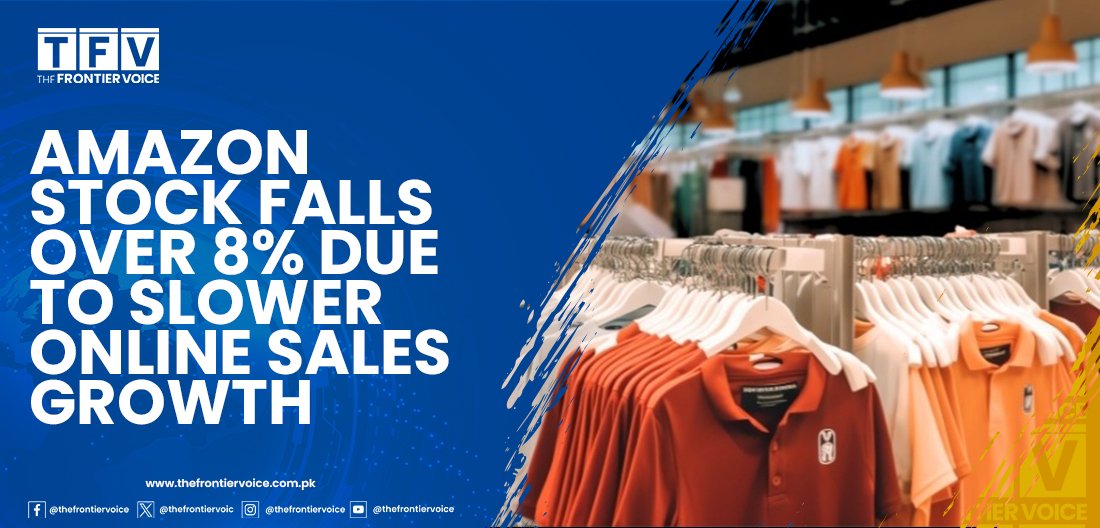TECHNOLOGY
Amazon Stock Falls Over 8% Due to Slower Online Sales Growth

Amazon’s stock experienced a significant drop of over 8% on Friday after the company announced that its online sales growth had slowed in the second quarter. The decrease in sales growth is attributed to consumers seeking more affordable options, reflecting a trend of value-conscious behavior among shoppers.
During a call following the company’s earnings report, Amazon CEO Andy Jassy noted that consumers were negotiating prices where they could, which has impacted the company’s sales performance. This slowdown in online sales growth comes ahead of Walmart’s quarterly results, which are expected to provide further insight into consumer spending trends. Despite the slowdown in online sales, Amazon’s overall performance in other areas exceeded expectations. The company’s cloud computing arm, Amazon Web Services (AWS), reported a revenue increase of 19% to $26.3 billion, surpassing market estimates. This growth in AWS revenue comes shortly after Microsoft’s Azure cloud division missed market expectations.
Amazon’s shares were trading at approximately $169 before the market opened, and the continued decline in stock value could result in a market value loss of around $157 billion. Analyst Michael Morton from MoffettNathanson commented, “Consumer spending trends facing retail peers appear to have finally caught up with Amazon’s P&L.” Sales through Amazon’s online store increased by 5% to $55.4 billion in the second quarter, following a 7% growth in the first quarter. However, the overall market sentiment has been affected by the slowdown in online sales growth.
In terms of valuation, Amazon’s forward price-to-earnings ratio for the next 12 months is 33.92, compared to Alphabet’s 20.46 and Microsoft’s 30.88, according to LSEG data.Amazon is also advancing in the field of artificial intelligence with its own “big language models” that can respond almost instantaneously to complex queries, keeping pace with competitors like Microsoft, which collaborates with OpenAI, and Google.












